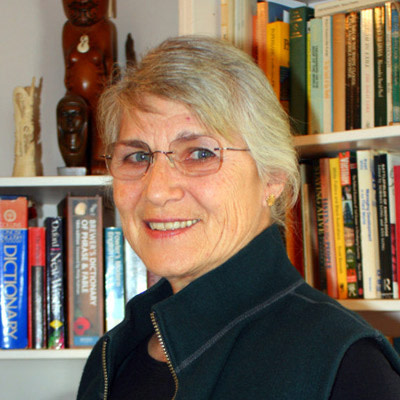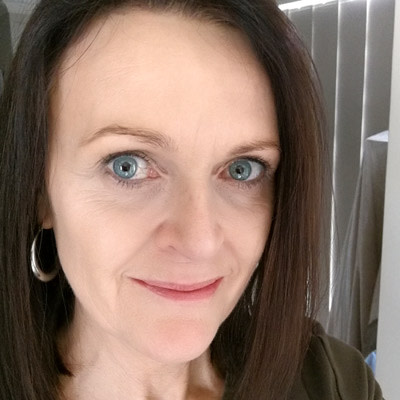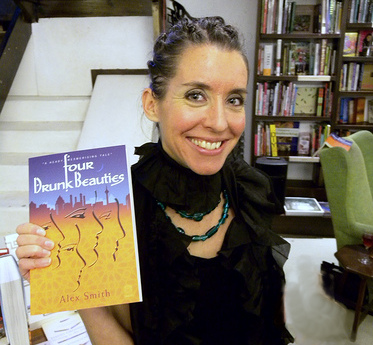The Short Story
Writing Course
The Short Story Writing Course
Learn how to write
winning short stories
All the basics of short story writing in one course
Short Story Writing Course is for you if you’ve always wanted to write stories, but didn’t know how to get started.
With the support and guidance of an award-winning writer, you’ll learn invaluable writing skills and techniques. What’s more, gain the confidence and expertise to write publishable stories – and submit them to literary publications around the world.
This course helps you ditch the doubts, overcome procrastination and finally write down the stories that have been living inside your head.
The Short Story Writing Course Gives You...
No Automated Marking
We use traditional methods of assessing work, as editors at publishing houses would. No generic feedback!
A Flexible Schedule
Work wherever and whenever you want. You can easily fit our courses around work and other commitments.
Relevant, Usable Content
Easy-to-digest course notes that capture a lifetime of writing experience, ready for you to apply to your own writing.
Ongoing Assessment
Your writing is assessed continuously as your course progresses.
Expert, Individual Feedback
Get prompt, honest, detailed feedback on every assignment from an award-winning writer. We focus on your unique writing strengths.
No Peer Reviews!
You will only be assessed by your tutor, a leader in their field. No more guessing and wondering how to write; you'll be guided line by line.
Unleash Your Creativity
in Your Short Stories
A creative writer’s how-to guide
This course provides you with all the tools you need to write short stories. You’ll also get tips and support on getting your stories published in literary print and online journals. Walk away with eight short stories ready for the publisher’s desk!
Our tutors have an open-door policy on questions. The more you ask, the better you are likely to do.
During this course, you’ll discover:
- how to create convincing characters
- the structure and plot of a good short story
- how to write realistic dialogue
- how point of view affects your story
- how to write flash fiction
- how to edit your work before submitting it
- where to send stories for publication, both locally and internationally
Unleash Your Creativity in Your Short Stories
A creative writer’s how-to guide
This course provides you with all the tools you need to write short stories. You’ll also get tips and support on getting your stories published in literary print and online journals. Walk away with eight short stories ready for the publisher’s desk!
Our tutors have an open-door policy on questions. The more you ask, the better you are likely to do.
During this course, you’ll discover:
- how to create convincing characters
- the structure and plot of a good short story
- how to write realistic dialogue
- how point of view affects your story
- how to write flash fiction
- how to edit your work before submitting it
- where to send stories for publication, both locally and internationally
‘My tutor was amazing. She was very prompt with her feedback and marking, and very clear in her feedforward. I highly recommend this course to anybody who needs the motivation to begin writing.’
Victoria Hathaway, Literary Short and Flash Fiction Course
Course Overview
COURSE FEE
£ 595
Price includes VAT/GST
NUMBER OF ASSIGNMENTS
10
The assignments vary in length.
NUMBER OF MODULES
10
These modules include around 200 pages of course notes.
COURSE DURATION
12
Work at your own pace – up to a maximum of 12 months.
START DATE: ANYTIME
Working with an individual tutor means you can start the course at any time.
ADMISSION REQUIREMENTS
- Basic writing skills are essential.
- Computer skills, e-mail and Internet access required.
- No previous tertiary qualification required.
Our Graduate Students' Successes
We are proud of our graduates who have achieved success. Here are a few among dozens of our creative writing success stories.







Tutors for this Course
Alex Smith
Alex Smith is the award-winning author of five novels: Algeria’s Way, Drinking from the Dragon’s Well, Four Drunk Beauties, Devilskein & Dearlove (published by Random House/Umuzi) and Agency Blue (published by Tafelberg).
Her work has received widespread acclaim. Drinking from the Dragon’s Well was longlisted for the Sunday Times Alan Paton Award and Devilskein & Dearlove was nominated for the 2015 CILIP Carnegie Medal in the UK. Agency Blue won a Sanlam Youth Literature Award, while Four Drunk Beauties won the Nielsen Booksellers’ Choice Award.
Alex tutors the Novel Writing Course, the Advanced Novel Writing Course, the Advanced Short Story Writing Course and the Grammar Skills Course, sharing her knowledge and expertise with students of all skill levels.

Andrew Salomon
Andrew Salomon’s young adult novel The Chrysalis was published by Oxford University Press. His latest novel, the fantasy thriller Tokoloshe Song, was published by Random House/Umuzi.
Andrew was shortlisted for the Terry Pratchett First Novel Award, twice shortlisted for the Science Fiction and Fantasy SA Short Story Competition, and was one of the winners of the PEN/Studzinski Literary Award for African Fiction.
He has had short stories published in numerous magazines, journals and collections, including A Thousand Faces: The Quarterly Journal of Superhero Fiction, Something Wicked, New Writing From Africa 2009, African Pens 2011 and the crime collection Bloody Satisfied. More of his short fiction will appear in the collections Dream World and Other Stories and The Journey and Other Stories.

Tania Hutley
(Subject to availability)
For many years, Tania Hutley worked as a Technical Writer in the software industry, but she always dreamed of writing creatively. She began by writing literary short stories and has been a runner up in New Zealand’s two most prestigious short story competitions, the Katherine Mansfield Awards and the Sunday Star Times Short Story Competition. In 2010 she won the Page and Blackmore National Short Story Award.
After branching out into novel writing, she published two middle-grade chapter books for children. Then she wrote the Skin Hunter science fiction trilogy, and co-wrote The Trouble With Witches urban fantasy series. Under the pen name Talia Hunter, she has also published eleven contemporary romance and romantic comedy novels and even made the USA Today Bestsellers List.
Though Tania started off with traditional publishers, she’s now enthusiastic about self-publishing and the control it gives to authors.
She was born in New Zealand, but has recently moved to Australia where she’s constantly amazed and not at all freaked out by the weird and wonderful critters. When she’s not writing, you can usually find her with a glass of wine, a good book, and a jumbo-sized can of bug spray.

Fiona Ingram
A graduate of the University of Natal, Wits, and international study abroad, Fiona Ingram started her writing career in magazine publishing and journalism. A holiday to Egypt with family sparked the beginning of her multi award-winning Middle Grade adventure series, The Chronicles of the Stone, which delights adventurers and explorers of all ages. These titles include The Secret of the Sacred Scarab, The Search for the Stone of Excalibur, and The Temple of the Crystal Timekeeper, with new titles in the works. Book awards include the Nautilus, Moonbeam, Rubery, Children’s Literary Classics, Wise Bear, Readers’ Favorite, and New York Big City Book Awards, among others.
A chance remark by her mom set her off in a new direction, writing historical romance. Fiona writes Regency romances under the pen name Arabella Sheraton and says going back into history is both entertaining and educational. Fiona has written seven Regency novels and a Jane Austen-inspired relationship self-help book, The Secret of Love. Regency titles include The Reluctant Bridegroom, The Dangerous Duke, Married at Midnight, Lord Blackwood’s Valentine Ball, The Lady’s Revenge, The Wayward Miss Wainwright, and Miss Dashwood’s Dilemma.
Fiona relocated to Cyprus several years ago and lives in a small farming village where the peace and quiet are perfect for creative writing.

Course Curriculum
Module 1
An Introduction to the Short Story
- What is a short story?
- Getting started
- Getting into a routine
- Battling writer’s block
- Some writing tips
Module 2
Ten Basic Tools for Creative Writers
- Use Anglo-Saxon not Latinate words
- Show don’t tell
- Use the active voice
- Cut adverbs and replace them with stronger verbs
- Point of view
- The three components of creative writing
- Writing action – reduce stage directions
- Writing descriptions – be specific
- Writing dialogue
Module 3
Characterisation
- Character-driven writing
- Types of characters
- Knowing your characters
- Presenting characters
- The importance of the ‘back story’
- The importance of the right name
Module 4
Writing Dialogue
- The function of dialogue
- Writing believable dialogue
- Starting your story with dialogue
- Writing authentic dialogue
- The use of ‘said’
- Using slang and dialect effectively
- Using silence as part of the dialogue
- How to convey thoughts
Module 5
Choosing Your Point of View
- Writing from the first-person point of view
- Writing from a second-person point of view
- Writing from a third-person point of view
Module 6
The Plot
- What is plot?
- Key elements of plot
- Various plot patterns
- The twist in the tale
- Sourcing ideas for plots
Module 7
Structure, Setting and Style
- The definition of structure in a story
- Structural devices to add interest
- Writing style: Using metaphors for maximum impact
- How settings can define your story – or not
Module 8
Effective Editing
- Why edit?
- The importance of word count
- Lean and mean is good
- Tying up the loose ends
Module 9
Writing Flash Fiction
- What is flash fiction?
- Key elements of flash fiction writing
- Where to submit flash fiction
Module 10
Publishing Your Story
- Why edit?
- The importance of word count
- Lean and mean is good
- Tying up the loose ends
This course offers an advanced course option
What Our Students Say
The Literary Short and Flash Fiction Course pushed my writing to its limits and me beyond my comfort zone - I feel I’ve grown so much as a writer as well as a person because of it. I cannot say enough positive things about Alex. Her insight was deep; I felt all my attempts at motifs, themes and symbolism were fully understood by her. There was an elegant, delicate honesty about Alex’s feedback – it was very genuine and constructive as well as very encouraging. She held me to higher standards and also fostered my every attempt to meet the mark. The Writers College is a hidden gem among online writing programs. It has the high, rich quality of an Oxford Continuing Education writing course for an incredibly affordable cost. I cannot recommend it enough in all my writing circles.
I liked the fact there were many opportunities to write stories. Having completed the course, I’m glad I picked this one from the many on offer. My tutor was very clear in her explanations, which I appreciated. Her comments were not restricted to course content either. If she spotted something in a story that didn’t ring true, she’d raise it. It was great to get that sort of feedback. She was also super-quick with returning module assessments and sent through an extremely comprehensive report at the end of the course. I loved it. I would not hesitate to enrol in another course!
I would describe the course as informative and interesting and very useful. It was definitely worth it; you learn all the necessary tools for the trade you’re interested in.
It was a concise and thorough course; I learnt a huge amount. I have done three courses with the Writers’ College now and realise I have barely scraped the surface of what I need to do and the journeys I have to go on to become a vaguely useful writer. I never anticipated how challenging flash fiction would be so I would like to do more. Alex rocks; she is calm and collected, which is necessary because I reckon new writers are terribly nervous and emotionally immature about their work. We are like toddlers: we need to be guided into maturity with patience and encouragement. She has a very classical eye which balanced out my tendency to want to break the bank, and in the end, I think that yin-yang was good for my writing. She was professional and a pleasant lady too. I’ll be back to sign up for another course.
The course was demanding enough for my writing to rapidly improve, which I am grateful for. The tutor provided a supportive role, which was important. She was very knowledgeable and definitely not a walk-over. She also introduced me to a wide range of new authors and ways of writing. The Writers’ College offers a great way to learn in a time and cost-efficient way.
This course has given me much confidence and a good understanding of what I still need to work on, especially the editing and keeping to a routine. While completing the modules and assignments I still had time to get on with writing my own short stories. I received valuable feedback and comments from my tutor; she was a dedicated reader that steered me in the right direction. So, although the real work starts now, I feel much more positive that I am progressing in the right direction even more so as English is not my first language. It was an invaluable experience.
Get These Additional Benefits
Lifetime Course Access
Benefit from free lifetime access to future course updates and access to our writing resources.
Work at Your Own Pace
Our courses work around you. You can pace your course around your busy life.
500+ Bonus Articles on Our Blog
A superb, constantly updated resource with articles on writing and interviews with writers.
Work Opportunities
Top students are invited to join our writers and editors for hire service.
Be the First to Know About Writing Competitions
We'll help you keep up to date with the latest competition announcements
Join a Community of Writers
You will have access to our friendly Facebook community, daily writing tips and writing inspiration.
Risk-Free 100% Money-Back Guarantee
We are so confident that you will love your course that if you’re not 100% satisfied with the quality of our training, simply ask for a refund within 30 days.
Complete the Application Form to Enrol on the Short Story Writing Course
You will receive an approval email and invoice within one working day.
Should your form not submit, please let admin know at admin@ukwriterscollege.co.uk
Questions?
We've Got Answers
The course consists of ten modules. Detailed course notes covering the content of each module are emailed to you. At the end of each module, you will be required to complete a writing exercise. In total, the course includes ten writing assignments, all of which count towards your final result. Once a writing assignment has been completed and emailed to your tutor, you will receive an assessment and feedback, and the module will be considered complete. The next module will then be emailed to you.
Absolutely. You have direct communication with your tutor for the duration of the course. The more questions you ask, the more you will get out of the course.
You will get lifetime access to the course. You will also benefit from future updates and improvements to the course.
For the majority of our courses, only your tutor will see your work. It will remain completely private unless you get it published. The journalism courses might see your work published in the public domain, but you do have the final say as to whether or not this happens.
You will receive a Writers College Certificate upon successful completion of the course, provided you meet the following conditions:
- You must have completed all assignments.
- The course must have been completed within 12 months of registration.
- A minimum average of 50% must be achieved.
- Basic writing skills are essential.
- You must be proficient in the English language.
- Computer skills as well as email and Internet access are required.
- No previous tertiary qualification is required.
Because you will work with an individual tutor, you can start your course as soon as your application has been approved. There are no specific start dates as would be the case with a traditional college.
An application is usually approved within one working day. Once we receive proof of payment, your can start your course.
You could be starting your course today!
The speed at which you work is entirely up to you. After studying the modules, the exercises should take up to two hours to complete. A complete story could take longer.
Once your application has been approved, you will receive notification of approval and an invoice via email. As soon as we receive proof of payment, the first module as well as your tutor’s email address and your login details will be sent to you. Your tutor will also be in touch to welcome you.
Any work created on our courses is owned by you. We will never make a claim to anything you produce. We follow the rule that copyright subsists with the creator (you).
